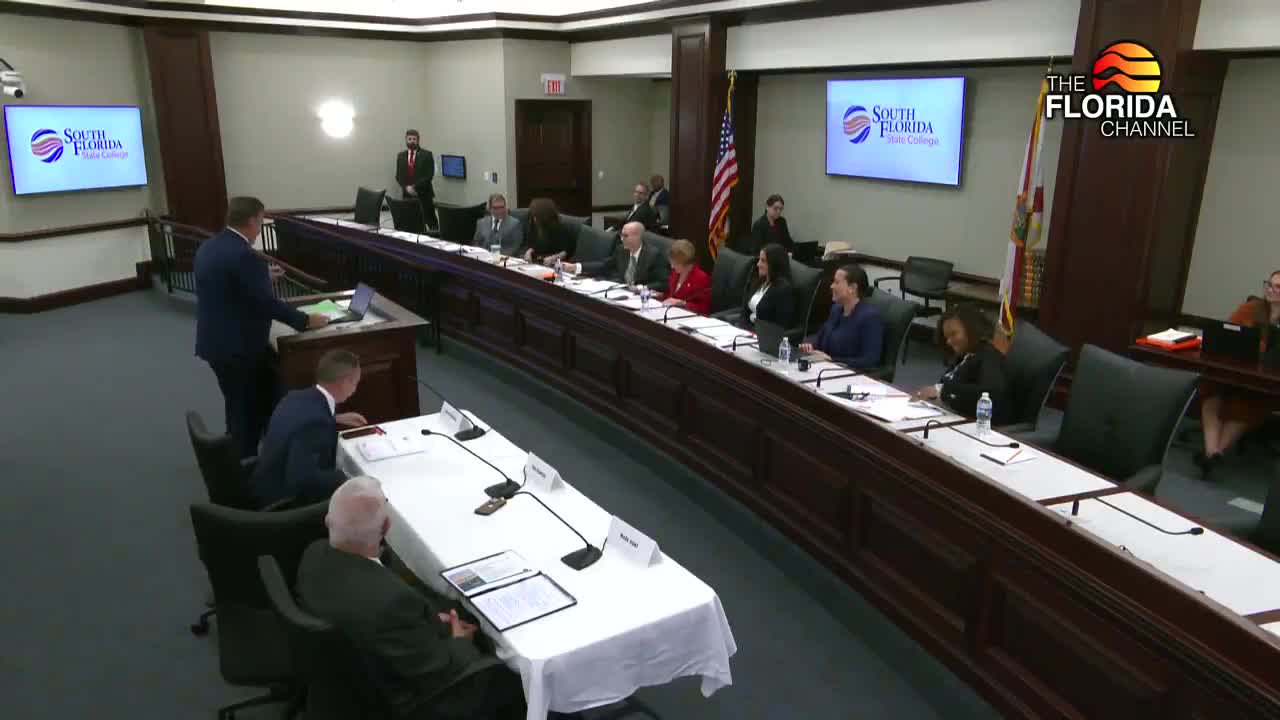South Florida State College president: lack of operational funds forces limits on enrollment
Get AI-powered insights, summaries, and transcripts
Subscribe
Summary
Fred Hawkins, president of South Florida State College, told the Senate committee the college is turning away students because it cannot fund additional faculty, and described local workforce needs, program pass rates and placement statistics.
Fred Hawkins, president of South Florida State College, told the Senate Higher Education Appropriations Committee that the primary constraint to expanding program capacity at his rural college is the lack of operational dollars to hire and retain faculty and staff.
Hawkins said South Florida State College serves a three-county, largely rural region with roughly 2,400 square miles and that many local households have one shared car; he said those geographic and demographic factors make local campus sites and programs essential for students. "The key constraint on expanding program capacity is the ability to attract and retain faculty and staff across our institution," Hawkins said.
Hawkins said the college cannot raise tuition or lab fees to meet compensation needs and that starting faculty salaries in several programs lag local wages for practicing professionals (for example, entry-level nursing and allied-health salaries). He described difficulties recruiting faculty for core academic courses (English, math, physical sciences) because the local pool of qualified people is limited.
Hawkins said South Florida State College enrolls just under 6,200 students and that, because of insufficient operational funding, the college is currently turning away students from programs the state emphasizes for workforce development. He did not provide a single consolidated count of students turned away in testimony, but said the affected programs include nursing, line-worker training, EMT/paramedic and other high-demand areas.
Hawkins also provided program performance figures the college tracks: he said the nursing associate program had a 92.45% NCLEX pass rate and 100% job placement; dental hygiene national board pass rate 100% with 100% placement; EMT-paramedic pass rate 85% with about 81% placement; and radiography first-attempt pass rate 74% with 100% placement.
Hawkins said the college has implemented cost-saving and modernization efforts and is open to efficiency reviews, but urged additional state investment to avoid turning away qualified students and to sustain the college's role in local economic development. "I really think that we are bare bones," Hawkins said, asking the committee to consider operational support to keep programs that feed local employers and hospitals in place.
Ending: Hawkins asked the committee to consider the department's operational requests and offered to provide county-level employment destination data to clarify where graduates work and whether they remain in the service area.
